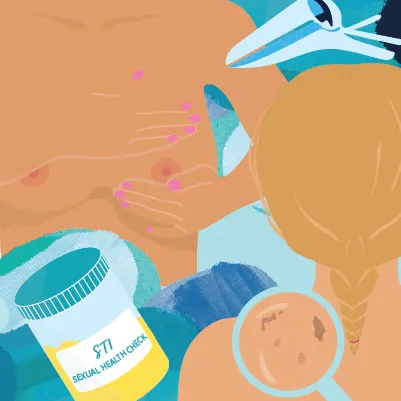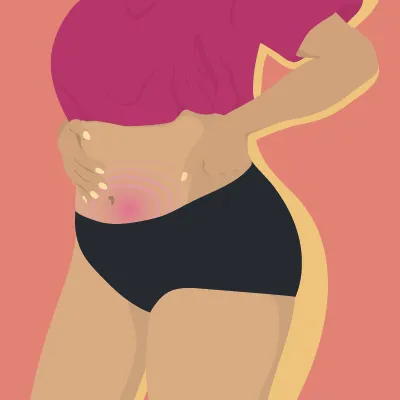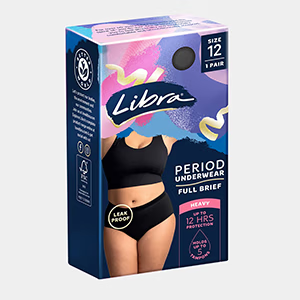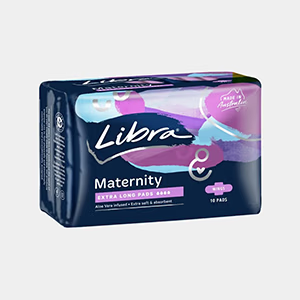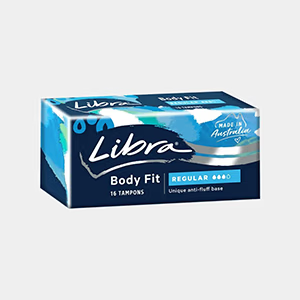Nov 27, 2023
Are lumps & bumps on my vagina normal?
Your body is constantly changing - and that’s pretty darn cool. Whether you’ve just started puberty (you’ll get through it!), or you’re curious about your body, we’ve got the down-low on down-there. We’re talking all things vaginal bumps and lumps and spoiler alert: they’re common and often nothing to worry about. So spare Dr Google and hear a little guide from us. As always, if you’re ever feeling concerned, see your medical professional.
What’s normal?
To understand what may or may not be ‘normal’, it helps to understand the anatomy of your genitalia. At the front of the vulva lies the mons pubis, a mound of tissue covering the pubic bone. Moving downward, the labia majora (outer lips), protect and enclose the labia minora (inner lips) that surround the opening of the vagina. Within the labia minora is the clitoris, urethral opening and vaginal opening.
It’s tricky to define what a ‘normal’ vulva looks like as they’re completely unique! There are lots of different shapes, sizes and colours. Unless your vulva is causing you pain or discomfort, there’s no reason to stress.
Common Lumps and Bumps
‘I’ve never seen a lump or bump down there before, should I be worried?’ Let’s start with the lumps and bumps that are totally common, usually harmless, and go away on their own:
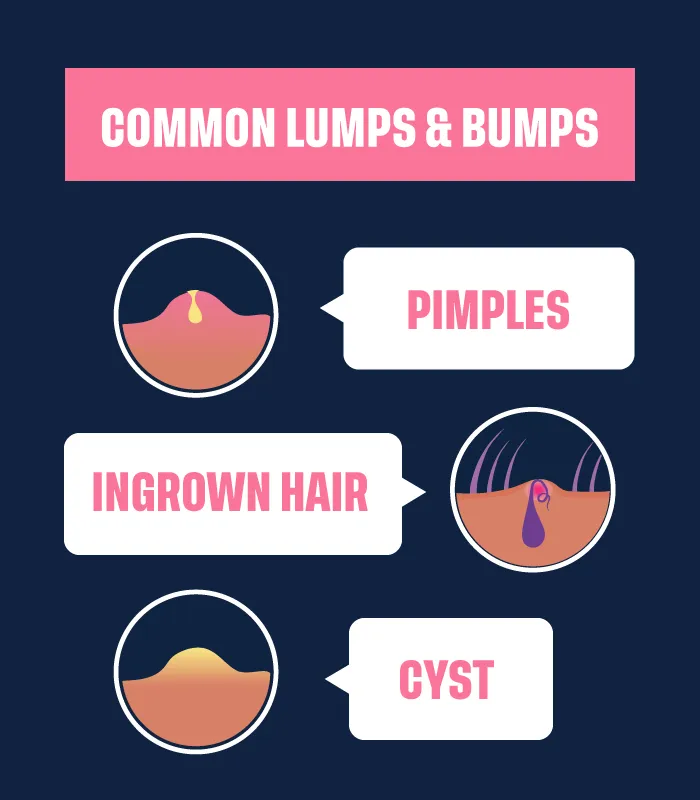
Pimples
Yep, pimples don’t just show up on your face right before School Photos, a job interview or a first date. Pimples can pop up anywhere on the body, including the vulva! Like any pimple, remember not to pick or pop it, as this could break the skin and potentially cause infection. Let it heal on its own.
Ingrown hairs
An ingrown hair is when a hair you’ve removed grows back into the skin and gets inflamed, resulting in a small bump that’s usually filled with pus. Not fun, but it’ll go away by itself. However, if you can’t wait, the safest way to treat an ingrown hair is by gently pulling it out with a sterile needle or tweezers, then applying rubbing alcohol to prevent infection. Be careful though as this can sting!
Cysts
Pretty much, cysts are bigger pimples that are usually more solid and painful. If you’ve ever had a painful bump on the labia minora that’s not quite a pimple, it was probably a cyst. Treat a cyst by letting it heal with time. If a cyst is causing you pain that’s interfering with your daily life, check in with your medical professional.
Abnormal Lumps and Bumps
And then there’s the not-so-common vaginal lumps and bumps. The ones that will require advice or diagnosis from a medical professional:
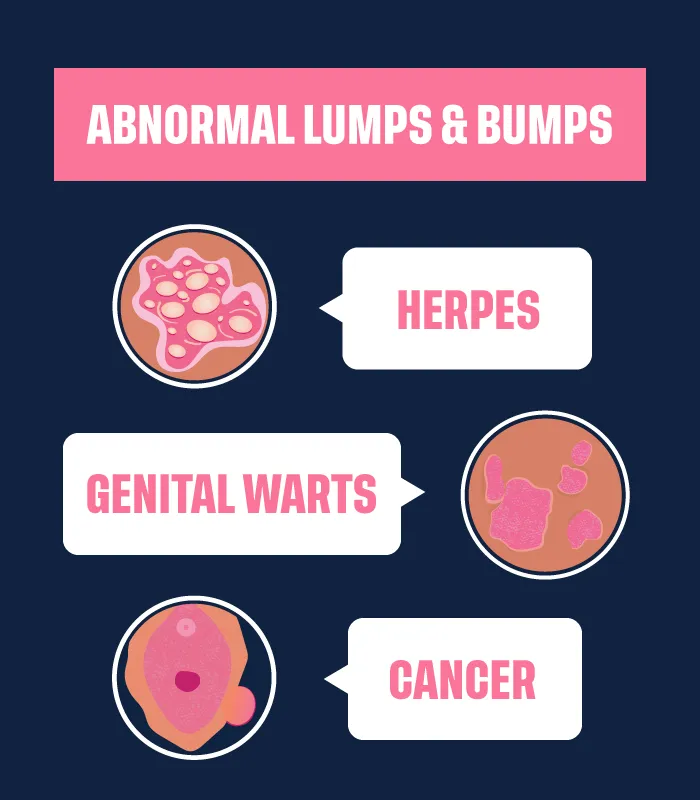
Genital warts
Genital warts are a sexually-transmitted infection caused by the Human Papillomavirus (HPV). It’s typically passed from skin-to-skin contact with the wart, usually during sex. Genital warts look like small, skin-coloured bumps and aren’t usually painful.
Herpes
There are 2 types of herpes: Herpes simplex type 1, which is herpes of or around the mouth and spread by skin-to-skin contact or saliva, and Herpes simplex type 2, which occurs on the genitals and is spread by skin-to-skin contact or bodily fluids. Herpes are another word for cold sores, so they will look like small clusters of red bumps that can blister or scab. The level of pain can vary.
Cancer
A cancerous vaginal lump or bump can vary in appearance, but most commonly looks like a raised, thickened or swollen growth on the vulva. It can be red, white or brown, or look like a mole.
If you notice anything unusual or experience a strong pain, please seek medical advice.
Self-Care
Caring for your vaginal health is key in reducing lumps ‘n’ bumps. This means wearing breathable fabrics where possible, avoiding harsh chemicals around your vulva, and washing the vulva daily with mild soap and water. Tip: the vagina is self-cleansing, so there’s no need to douche, as this can throw off the pH balance!
There’s your 101 on vaginal lumps and bumps. If you ever feel concerned or something just seems not quite right, seek advice from a medical professional.
Love, Libra x
Anything else? Essity Australiasia makes no warranties or representations regarding the completeness or accuracy of the information. This information should be used only as a guide and should not be relied upon as a substitute for professional, medical or other health professional advice.

